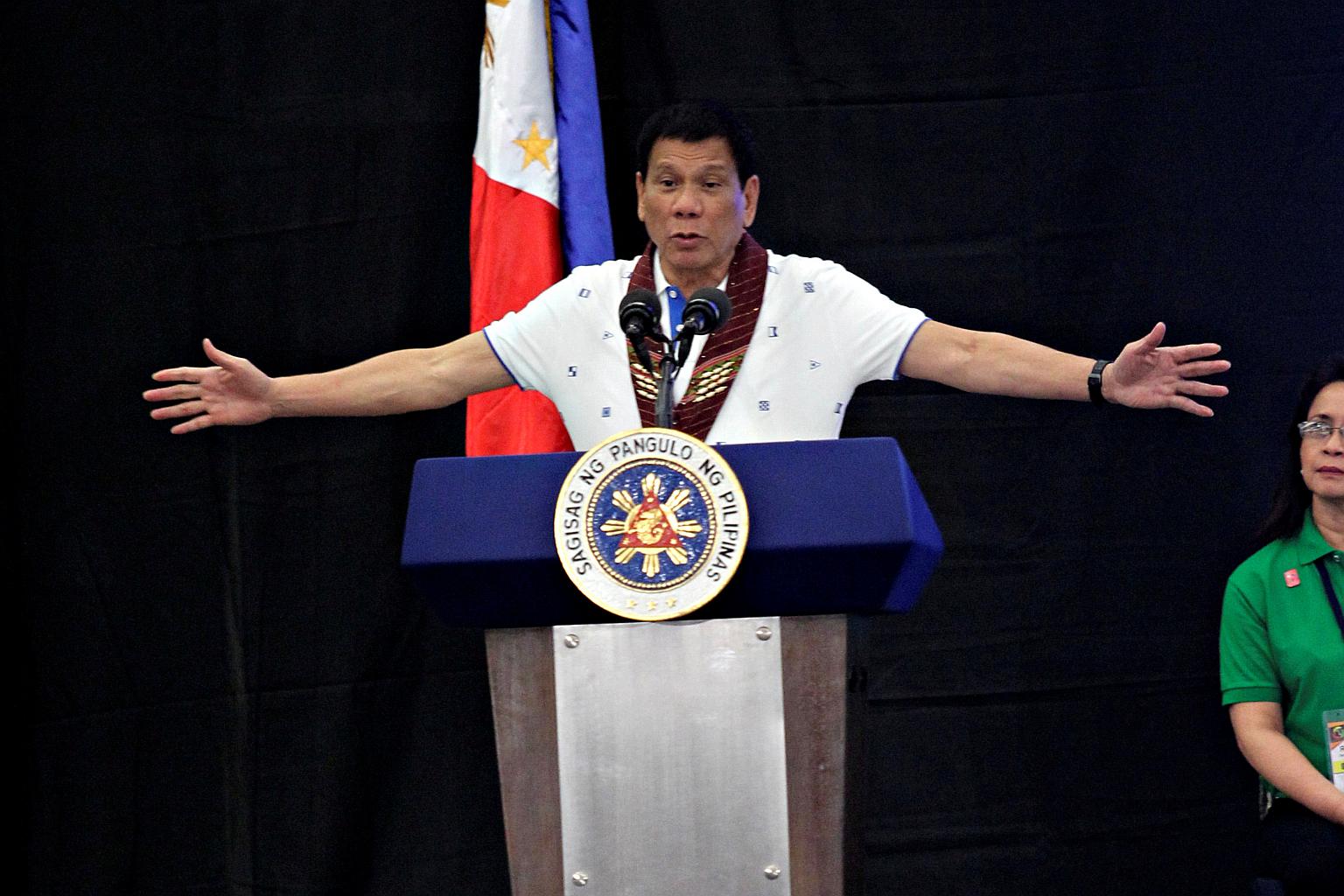Philippine President Duterte says the country will maintain military alliances
Sign up now: Get insights on Asia's fast-moving developments

President Rodrigo Duterte has said that the Philippines will not break its existing treaties and would maintain all its military alliances.
PHOTO: REUTERS
Follow topic:
MANILA (Reuters) - Philippine President Rodrigo Duterte said on Wednesday (Oct 12) his country would not abrogate its existing treaties and would maintain all its military alliances, amid uncertainty over the future of security ties with the United States.
"We need not really break or abrogate our existing treaties because they say that it could provide us with the umbrella,"Mr Duterte said in a speech to the Philippine coast guard in Manila. "We will maintain all military alliances because they say we need it for our defence."
It was not immediately clear who Mr Duterte was referring to by his use of the term "they".
China confirmed on Wednesday that Mr Duterte will visit China next week, as the South-east Asian leader's relationship with its traditional ally the United States frays.
Under Mr Duterte, Manila's relations with Washington have come under strain and the recently elected president has opted to put aside years of hostility with China, especially over the disputed South China Sea, to form a new partnership.
Chinese Foreign Ministry spokesman Geng Shuang, confirming a visit previously flagged in Manila, said Mr Duterte would meet President Xi Jinping and Premier Li Keqiang on his Oct 18-21 trip and have a "deep exchange of views" on how to improve ties, cooperation and regional issues.
About 250 Philippine business executives will visit Beijing with Mr Duterte. Filipino executives are eager to talk with Chinese business leaders and government officials about deals in a range of sectors, from rail, and construction to tourism, agribusiness, power and manufacturing, sources told Reuters.
"China looks forward to increasing mutual trust between the two countries, deepening practical cooperation and continuing the tradition of friendship via the visit of President Duterte," Mr Geng told a daily news briefing.
The two should appropriately handle disputes through talks and promote a strategic, cooperative relationship that is dedicated to peace and development, he added. "The Philippines is a traditionally friendly neighbour of China. The two peoples have a long history of friendship."
Elected in June, Mr Duterte's deadly war of drugs and support for extrajudicial killings have drawn the ire of the US, a former colonial power and traditionally one of the Philippines'staunchest supporters.
Mr Duterte has responded to that criticism by telling US President Barack Obama to "go to hell" and saying he wants to distance the Philippines' dependence on the country.
Coinciding with that has been a rapprochement with China, despite the cool relations the two countries have had, dogged in recent years by mistrust over rival territorial claims in the South China Sea.
Mr Duterte said on Tuesday he will also probably visit Russia after a trip to Japan this month.
An arbitration court ruling in the Hague on July 12 that said China had breached the Philippines' sovereign rights in the South China Sea had threatened to lead to a further deterioration in ties between Manila and Beijing.
But Mr Duterte's forthcoming trip could prove a turning point, with promises to hold talks with China on the South China Sea dispute and signs of a new and potentially much deeper economic relationship.
Chinese spokesman Geng repeated Beijing's standard line that China wanted to resolve the dispute via talks with the parties directly involved, including the Philippines.

